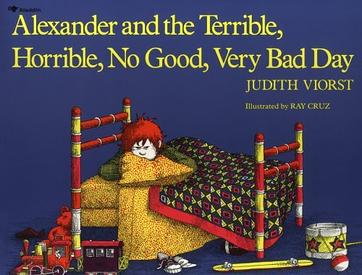Snapping the Pieces Together
by Jon Stark
November, 2014, about 1100 words
November, 2014, about 1100 words
Blustery is probably the best word, because the wind was
fierce and when you’re on the corner of 31st and Avenue of the
Americas it’s hard to find someone to help you.
There was one nice man but he apologized, said he was from Brooklyn, and
had no idea where Garrett’s was.
If you have never been to New York City than you can’t
imagine how big it is. Not really. You can’t sympathize with the man from
Brooklyn who didn’t have a clue about the iconic popcorn shop that I hadn’t
even heard of before this trip. And I lived
there for years. Brooklyn, not
Manhattan.
Which makes another interesting point. If you’ve never lived in New York City you
don’t know how small it is. You know how
Legos all sort of snap together and make up interesting things but all the
interesting things – death stars and Hogwarts and race cars – are made up of
the same blocks? That’s New York. A thousand small towns where everybody knows
everybody all snapped together and connected by a half dozen bridges and
tunnels into a 7 million person metropolis.
I don’t live there anymore.
And my girlfriend said that when I came back I’d better have a bag of
caramel corn from Garrett’s. Apparently,
to her, Garrett’s is New York. I have
another friend who told me to make sure I had a knish. “It isn’t a trip to New York without having a
good knish.” For me it is. I don’t like them. Maybe a slice from Cosimo’s or D’Angelo’s but
I didn’t bother with that this trip, New York isn’t about the food. Not once you’re from there.
Not that I was ever from Manhattan, but I spent a lot of
time in the lower part, down by Battery Park and Pearl Street and the
towers. That’s New York to me. They’re gone now. What they’ve put back is a sign of the city’s
decline. They dress it up with fancy
language, but the truth is obvious. If
New York was still the center of the universe and a place of opportunity and
growth, they’d have built something big.
Real Estate that valuable wouldn’t have been used for a memorial.
Don’t get me wrong, I think a memorial is good. When I was dating Toni -- when I lived in
Brooklyn --she and Mike’s wife had to go across the bridge for a procedure so
Mikel and I went too. And her son
Brandon. He was probably about
three. I didn’t know anything about
being a father, wasn’t interested in being a father, but Mike was so it was a
good day. Sometimes I wonder if Brandon
remembers that trip or if we were just part of the blur of faces that came in
and out of his mother’s life.
The twin towers of the World Trade Center were huge. You know what I mean if you’ve ever stood at
the foot of them and looked up. I
remember one time driving across the Brooklyn Bridge and seeing the towers
disappear into a cloudbank only to emerge into bright sunlight a few hundred
feet later. They were like mountains,
sheer unassailable cliff faces rising from the bedrock with more concrete and
glass than my hometown. We wandered in
their shadow and stumbled across a firehouse.
There was no Dalmatian but the young men working there were friendly
and went out of their way to show Brandon everything there was to know about
their truck and the garage. They even
took us all upstairs to see the barracks and kitchen.
I think of those men every time I see smoke in the
towers. I hope they transferred before
September. It doesn’t change the tragedy
of what happened but maybe the people who died weren’t as nice. Bad things should happen to bad people.
There was a girl I knew who worked there. In the towers, not the fire house. Her name was Tricia and she liked Pinot Noir
and I couldn’t afford to take her out again.
We’d meet socially on occasion and I liked to think she always wanted me
to ask again. I almost did a couple of
times, but she was out of my league. Or
I was just scared.
When I stood at the construction site of what used to be the
towers I overheard an old woman complaining to her daughter and grandchildren
that she’d never been to the top of the towers.
She’d had the chance but didn’t want to spend the $17. It was a regret, she said. Don’t be cheap when life offers you a chance
for something wonderful.
It made me think of Tricia.
I don’t usually think of her when I see the towers. But it did then. Her office was above the line. Impossibly high. I thought about her fear. Her terrible choice. I think she would have jumped. I looked at the street, the broken sidewalk where
I stood and wondered if maybe that was where she landed.
Or someone else. I
was suddenly overwhelmed and my knees buckled and the city around me became a
blur and I had to get out and I couldn’t understand how the woman could
complain about her life being incomplete when she was still alive and how could
anyone blow their horn in impatience there, in the cramped quarters of the
final resting place of thousands of souls who had loved the city and hated the
city and gone to work excited or hung over and had plans for weddings or
birthdays or were expecting children or grandchildren and it made me terribly
sad.
And that was New York to me, not knish and certainly not
Garrett’s Gourmet Popcorn but here I was, wind tearing at my ears and killing
time before my train following directions on my iPhone that told me I was right
there but I couldn’t see it. The man
from Brooklyn couldn’t see it.
And then I did see it.
I’d over looked the door a hundred times. You know how it is, if you’ve ever looked for
a special place in New York. No
awning. No real store front. Just a door and a window and a small sign
that said, “Garrett’s.”
The door was open. A
woman held it for a family that must have been from North Dakota because they
were in shirt sleeves and the rest of the world was freezing and I saw her face
and it was Tricia and she was alive.




